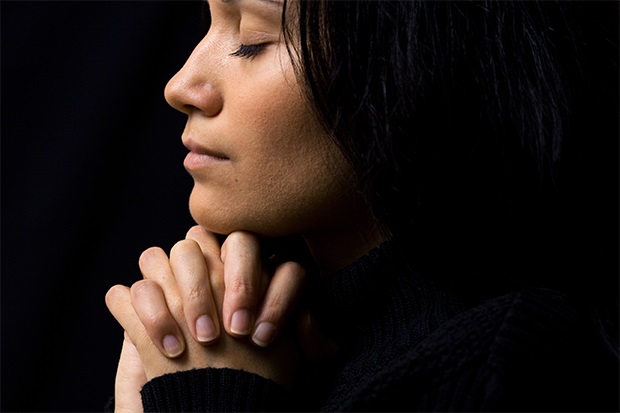Coronavirus has shut down most places of worship. Now what?
 Photo/Getty Images
Photo/Getty ImagesAmericans of faith are adjusting to the new reality of not being able to gather in worship because of the coronavirus pandemic.
Most chapels, synagogues, churches, mosques and other sacred spaces have temporarily shuttered to prevent the disease’s spread, disrupting communal worship. In response, faith communities nationwide are taking new, unprecedented steps to worship together.
Brandeis sociology professor Wendy Cadge, founder of the Chaplaincy Innovation Lab and an expert on religious life and the chaplaincy, discussed the coronavirus’ impact on religion in America.
How do national crises like the coronavirus pandemic affect how and why people worship?
In times of national crisis, like 9/11 or the Boston Marathon bombing in 2013, people often gather in places of worship for community, comfort, encouragement and to grieve. Even today, as many such places are physically closed, people are gathering virtually.
Traditional gatherings are going online. For instance, Old South Church in Boston is live-streaming virtual services, as are synagogues, mosques and other places of worship across the country.
There are lots of gatherings online using Zoom, phone calls, and live streaming.
New sacred spaces are also emerging. For example, the Sacred Design Lab is regularly hosting an online, 25-minute communal reflection period called “Family Church.” And the Chaplaincy Innovation Lab is hosting a town hall on Tuesdays at noon to support chaplains across settings as they adjust to completing much much more of their work via tele-chaplaincy.
Are some religious traditions more impacted than others by these closures?
People across the country are struggling right now, regardless of their faith background, with the uncertainty of the present moment. Worship is almost always communal, either by custom or regulation, so most traditions are being forced to figure how to “do” worship remotely — and not just as a convenient option.
Do you think some innovations will continue even after ordinary life resumes?
I do think a lot of these innovations will stick around. Religion in the U.S. has always been flexible and adaptable. This is yet another example.
For religious communities that do engage in regular, communal worship, there’s a lot of live streaming going on. Oddly enough, some of the most hierarchical and “rules-based” traditions already have mechanisms “baked in” for coping with this pandemic. For instance, Catholic bishops have simply forbidden in-person worship, which eliminates the need to discuss what to do in public.
Are there any creative approaches that you've found particularly interesting or effective?
In addition to hosting rituals using online tools like Zoom, congregants are also using the platform to hold informal gatherings for meditation and to connect people who are not necessarily religiously affiliated. Even those continuing to serve in some hospitals, like healthcare chaplains, are gathering through Zoom to share their experiences and perspectives. The Chaplaincy Innovation Lab is hosting some of these gatherings and is working to support them and the people they serve during this time.Categories: General, Humanities and Social Sciences, Research





